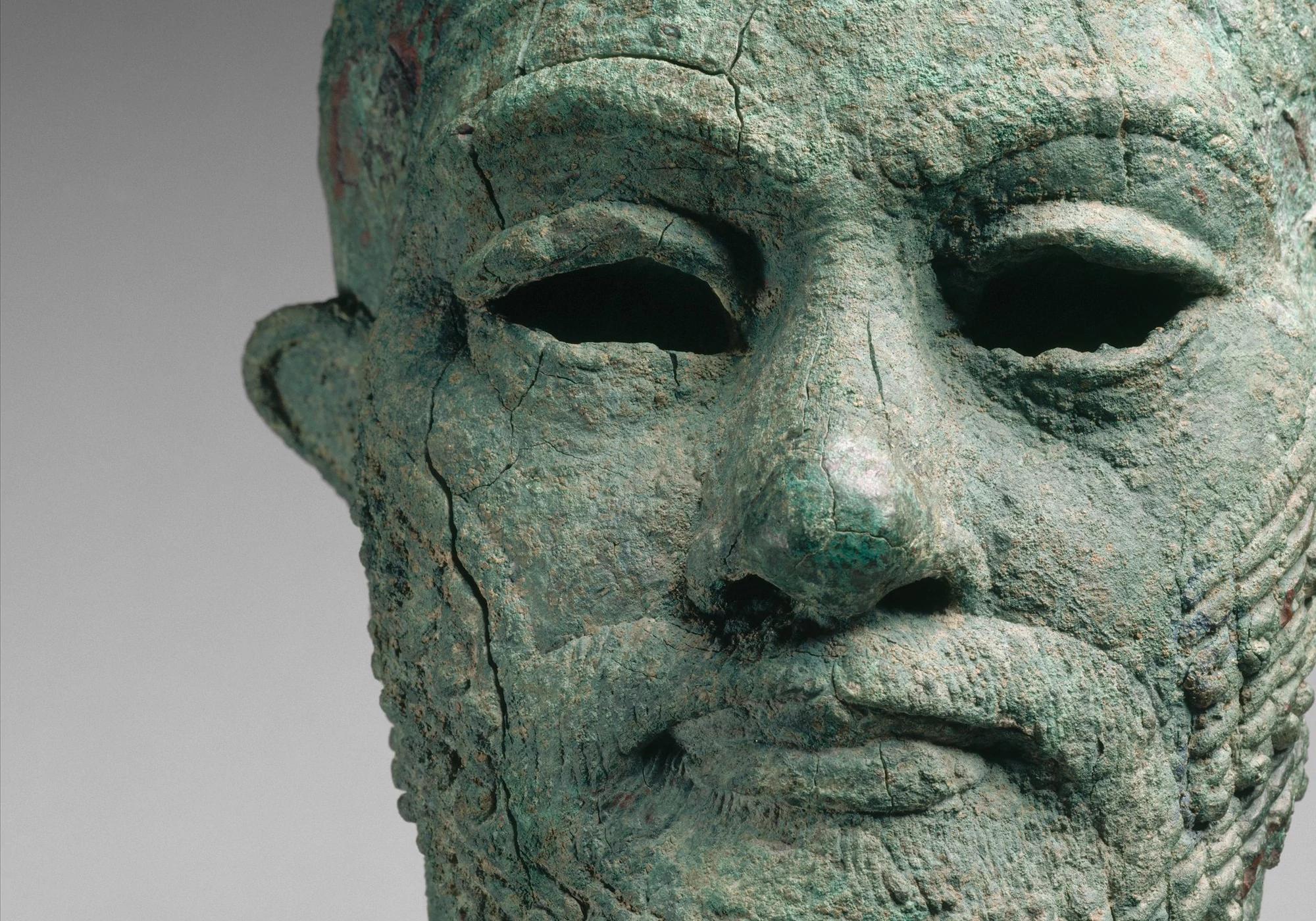
Mesopotamia
Poetry, war, and the invention of law
3500 – 1000BCE“Schoolboy, where did you go from earliest days?”
“I went to school.”
“What did you do in school?”
“I read my tablet, ate my lunch,
prepared my tablet, wrote it, finished it; then
my prepared lines were prepared for me
(and in) the afternoon, my hand copies were prepared for me.
Upon the school’s dismissal, I went home,
Entered the house, (there) was my father sitting.
I spoke to my father of my hand copies, then
Read the tablet to him, (and) my father was pleased;
Truly I found favor with my father.
“I am thirsty, give me drink,
I am hungry, give me bread,
Wash my feet, set up the bed, I want to go to sleep;
Wake me early in the morning,
I must not be late, (or) my teacher will cane me.”
When I awoke early in the morning,
I faced my mother, and
Said to her: “Give me my lunch, I want to go to school.”
My mother gave me two “rolls,” I left her;
My mother gave me two “rolls,” I went to school.
In the tablet-house, the monitor said to me: “Why are you late?” I was afraid, my heart beat fast.
I entered before my teacher, took (my) place.
My “school-father” read my tablet to me,
(said) “The. . . is cut off,” caned me.
I. . . d to him lunch. . . lunch.
The teacher in supervising the school duties,
Looked into house and street in order to pounce upon some one, (said) “Your. . . is not. . .,” caned me.
My “school-father” brought me my tablet.
What was in charge of the courtyard said “Write,” . . . a peaceful place.
I took my tablet,. . .
I write my tablet,. . . my. . .
Its unexamined part my. . . does not know.
Who was in charge of . . . (said) “Why when I was not here did you talk?” caned me. Who was in charge of the. . . (said) “Why when I was not here did you not keep your head high?”
caned me.
Who was in charge of drawing (said) “Why when I was not here did you stand up?” caned me.
Who was in charge of the gate (said) “Why when I was not here did you go out?” caned me.
Who was in charge of the. . . (said) “Why when I was not here did you take the. . .?” caned me.
Who was in charge of the Sumerian (said) “You spoke. . .,” caned me.
My teacher (said) “Your hand is not good,” caned me.
I neglected the scribal art, [I forsook] the scribal art,
My teacher did not. . .,
… d me his skill in the scribal art.
The. . . of words, the art of being a young scribe,
the. . . of the art of being a big brother, let no one. . . to school.”
“Give me his gift, let him direct the way to you,
let him put aside counting and accounting;
the current school affairs
the schoolboys will. . ., verily they will. . . me.”
To that which the schoolboy said, his father gave heed.
The teacher was brought from school;
having entered the house, he was seated in the seat of honor.
The schoolboy took the … , sat down before him;
whatever he had learned of the scribal art,
he unfolded to his father.
His father, with joyful heart
says joyfully to his “school-father":
“You ‘open the hand’ of my young one, you make of him an expert,
show him all the fine points of the scribal art.
You have shown him all the more obvious details of the tablet-craft, of counting and accounting,
You have clarified for him all the more recondite details of the. . .”
“Pour out for him … like good wine, bring him a stand,
make flow the good oil in his. . .-vessel like water,
I will dress him in a (new) garment, present him a gift, put a band [a ring] about his hand.”
They pour out for him. . . like good date-wine, brought him a stand,
made flow the good oil in his. . .-vessel like water,
he dressed him in a (new) garment, gave him a gift, put a band about his hand.
The teacher with joyful heart gave speech to him:
“Young man, because you did not neglect my word, did not forsake it,
May you reach the pinnacle of the scribal art, achieve it completely.
Because you gave me that which you were by no means obliged (to give),
you presented me with a gift over and above my earnings, have shown me great honor,
may Nidaba, the queen of the guardian deities, be your guardian deity,
may she show favor to your fashioned reed,
may she take all evil from your hand copies.
Of your brothers, may you be their leader,
Of your companions, may you be their chief,
May you rank the highest of (all) the schoolboys,
. . . who come from the royal house.
Young man, you “know” a father, I am second to him,
I will give speech to you, will decree (your) fate:
Verily your father and [mother] will support you in this matter,
As [that] which is Nidaba’s, as that which is thy god’s, they will present offerings and prayers to her;
the teacher, as that which is your father’s verily will pay homage to you;
in the … of the teacher, in the … of the big brother,
your … whom you have established,
your manly [kinfolk] verily will show you favor.
You have carried out well the school duties, have become a man of learning.
Nidaba, the queen of the place of learning, you have exalted.”
O Nidaba, praise!